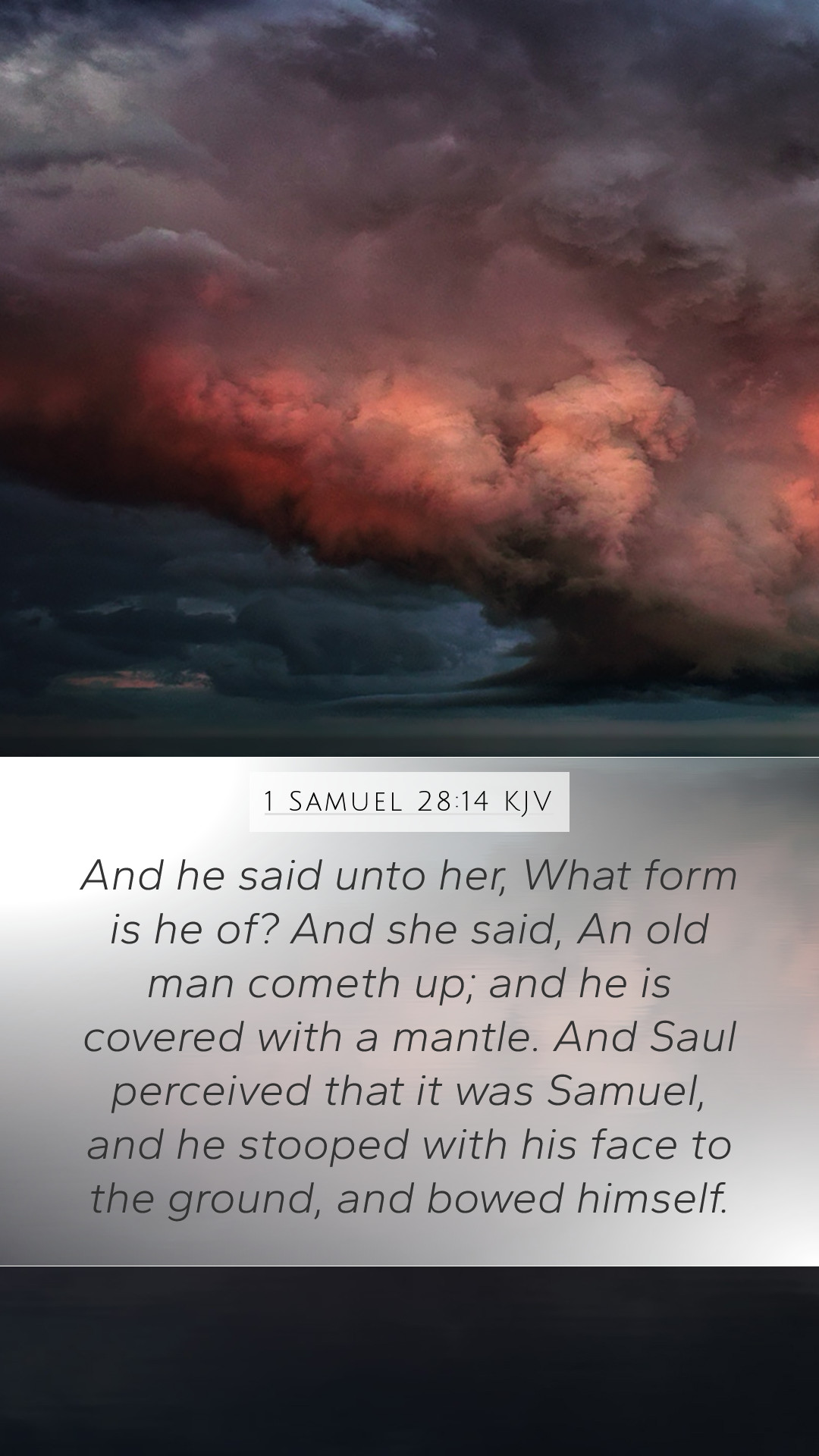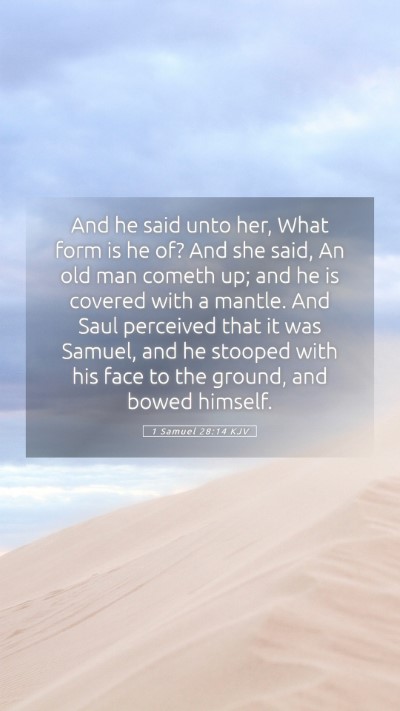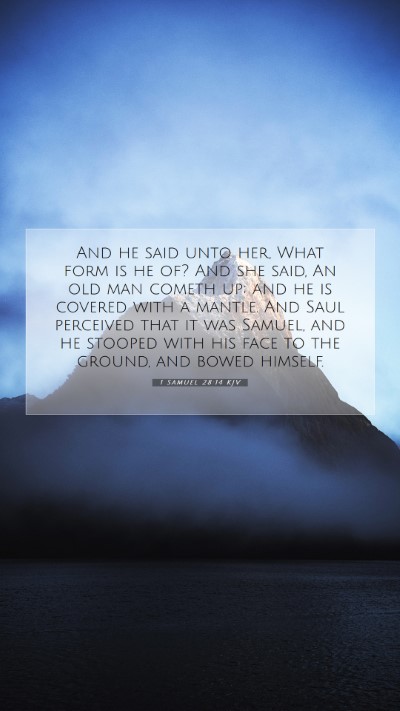1 Samuel 28:14 - Bible Verse Explanation and Commentary
Verse: 1 Samuel 28:14: "And he said unto her, What form is he of? And she said, An old man cometh up; and he is covered with a mantle. And Saul perceived that it was Samuel, and he stooped with his face to the ground, and bowed himself."
Overview
This verse depicts a profound moment in the life of King Saul, where he seeks guidance from the deceased prophet Samuel through a medium. Here, the interpretation of Samuel's appearance is met with fear and reverence, as Saul understands that he is in the presence of God’s messenger.
Historical Context
The setting of this passage is significant as it marks a pivotal moment in Israel's history. Saul, having disobeyed God and lost His favor, turns to forbidden practices in his desperation. The context of the verse emphasizes Saul's desperation and the lengths to which he will go to receive guidance.
Commentary Insights
- Matthew Henry: Henry reflects on the tragic nature of Saul's circumstance, illustrating how far he has fallen from a king seeking God to one now reaching out to the dead. He emphasizes the deep spiritual consequences of Saul's actions.
- Albert Barnes: Barnes highlights the significance of the medium’s ability to invoke Samuel. He points out that this occurrence is a violation of God’s law, yet God allows it to serve a purpose in revealing Saul’s fate.
- Adam Clarke: Clarke offers an analysis of the description of Samuel's appearance, arguing that it conveys solemnity and authority. The old man's mantle symbolizes prophetic dignity, reinforcing the serious nature of Saul’s encounter.
Biblical Exegesis
The act of consulting a medium or witch—specifically the one at Endor—is seen as a grave sin in the eyes of the Lord. This passage prompts readers to consider the larger theme of desperation leading to despair and turning away from God. The unexpected appearance of Samuel serves to remind us of the consequences of straying from divine guidance.
Application of the Verse
1 Samuel 28:14 urges readers to reflect on their relationship with God. It raises the question of what lengths we might go to when feeling abandoned or desperate. It calls for a deeper understanding of reliance on divine guidance rather than human or forbidden means.
Related Bible Verses
- 1 Chronicles 10:13-14: Discusses Saul’s downfall and God’s rejection of him.
- Deuteronomy 18:10-12: Outlines God’s prohibition against consulting mediums.
- Matthew 17:3: Talks about the appearance of Moses and Elijah, contrasting it with Samuel's return.
Conclusion
1 Samuel 28:14 is a compelling verse that resonates with the themes of despair, spiritual authority, and the dire consequences of seeking guidance outside of God. The interpretations provided by respected commentators enhance the understanding of this scripture. For those studying the Bible, this verse is paramount in exploring the concept of divine authority and the dangers of wandering away from faith.
Bible Study Insights
For deeper engagement with this passage, consider forming or joining bible study groups that focus on Old Testament narratives. Utilize bible study tools such as commentaries and historical resources to gain further insight into similar themes throughout the Scripture.
Further Reading Recommendations
- How to interpret Bible verses: Understanding the context and background of verses like 1 Samuel 28:14 can illuminate their meanings.
- Understanding difficult Bible passages: This verse is an excellent example of a passage that may require in-depth analysis and historical context.
- Applying Bible verses to daily life: Consider how the desperation in Saul's situation parallels modern challenges, prompting reflection on trust in God.


